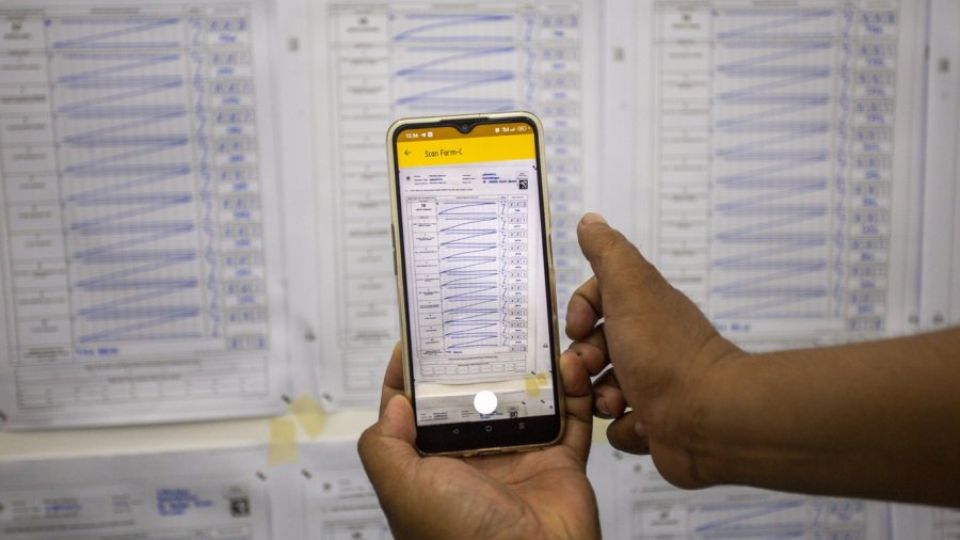February 26, 2024
JAKARTA – Amid a rise in deaths among poll workers over the past few days despite efforts to prevent fatalities during the 2024 election, questions have emerged on if the country should hold the presidential and legislative elections on a single day. The Health Ministry reported on Saturday that at least 108 poll workers had died and more than 14,300 others had fallen ill between election day on Feb. 14 and Feb. 22. Heart attacks and hypertension caused the majority of deaths. Of the total figure for deaths and illnesses among poll workers, paid volunteers recruited as local poll administrators (KPPS) by the General Elections Commission (KPU) dominated with 58 deaths and more than 7,200 falling ill. The remainder comprised workers at subdistrict and district-levels polling committees, election monitors recruited by the Elections Supervisory Agency (Bawaslu) and polling station officers tasked with maintaining order during voting. The KPU imposed an age limit of 55 years and mandatory health screenings this year to prevent fatalities among the 5.7 million KPPS recruited to staff polling stations and manually count ballots. The new measures were introduced in response to the tragic toll during the first simultaneous elections in 2019, when 6,000 KPPS fell ill and nearly 900 died from exhaustion and overwork.
Activist Khoirunnisa Agustyati of the Association for Elections and Democracy (Perludem) said simultaneous elections were too complex and put too heavy a workload on election workers, particularly local poll administrators. “The only way to prevent more deaths is to hold some of the elections separately, like we used to do,” Khoirunnisa told The Jakarta Post.
Aminurokhman, a NasDem Party lawmaker on House of Representatives Commission II overseeing home affairs, shared a similar view and emphasized the need for a comprehensive review of election laws and regulations.
“Simultaneous general elections put a disproportionate burden on poll administrators. Not only do they have to manage polling stations throughout [election] day, they still have to manually count [physical] ballots for 12 straight hours after the polls end,” he said on Thursday.
Following their colleagues’ deaths during the 2019 general election, four former KPPS from West Java petitioned the Constitutional Court in 2021 to demand that the presidential and legislative elections be held separately.
The court rejected the petition on the grounds that the KPU was responsible for setting reasonable working hours for poll workers, regardless of the elections’ format.
Digital failure
The KPU also digitalized part of the vote counting and tabulation processes to reduce paperwork and working hours for poll workers.
But this measure backfired and instead increased the workload of poll administrators: In addition to counting, tallying and tabulating votes, they must now also take scans or pictures of the completed C1 tabulation forms of each polling station and upload them to the KPU’s Sirekap vote counting and tabulation tracking app.
“The use of a digital tabulation platform did not significantly cut poll administrators’ working hours. The majority of workers did not sleep for two days during the election,” said Pramono Ubaid, a commissioner at the National Commission on Human Rights (Komnas HAM), as quoted by Kompas.com.
In a press conference on Friday, KPU chairman Hasyim Asy’ari said the election body had initially planned to implement a new, two-panel mechanism at polling stations to speed up vote counting and tabulation.
“However, when we proposed the idea to lawmakers, they rejected it. They said a new system like that would make monitoring the vote counting difficult, as most political parties could only send one observer to each polling station,” Hasyim said.
Thorough medical checkups
Sally Aman Nasution, who chairs the Indonesian Society of Internal Medicine (PAPDI), questioned the thoroughness of the health screenings provided to election workers, saying that in general, only people with comorbidities would die from excessive fatigue.
“Although exhaustion is one of the most common precursors of sudden cardiac death and fatal strokes, fatigue would not trigger heart attacks in healthy people,” Sally told the Post.
She also urged the government to more thoroughly investigate the cause of death for the more than 100 poll workers who had died, so the KPU and lawmakers could formulate better strategies to prevent fatalities in future elections.
Cardiologist Vito Anggarino Damay said thorough health checks and proportional working hours were key to preventing more deaths.
“The KPU should only hire people who are completely healthy and do not have any underlying health conditions. It is also important that the KPU implements a work system that allows [election] workers to get six to seven hours of sleep [every] night,” he said.


